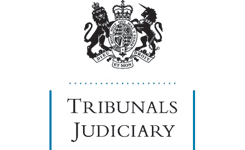|
Notes:
|
Reported as [2016] AACR 45.
Tax credits – nature of main responsibility – proper approach to deciding parent with main responsibility
The claimant and his wife jointly claimed child tax credit (CTC) for their children until June 2013 after which he successfully claimed as a single person. The wife then claimed CTC and, after an investigation, Her Majesty’s Revenue and Customs decided that she had the main responsibility for the children and terminated the claimant’s award. The claimant appealed to the First-tier Tribunal (F-tT), arguing that due to his wife’s mental health he was the children’s primary carer as, among other things, he spent more time with them, had arranged their education, was the main financial provider and incurred considerable costs when visiting them. The F-tT rejected his appeal after taking account of the High Court’s order which provided for the children to be with the claimant on three nights and the wife on four nights, holding that responsibility had to be given its ordinary meaning, and that a parent had responsibility when a child was resident with them. The claimant appealed to the Upper Tribunal (UT), arguing that he and his wife had agreed to vary the terms of the order and that the F-tT had failed to take account of the actual arrangements. The issue before the UT was the meaning of main responsibility in rule 2.2 of regulation 3 of the Child Tax Credit Regulations 2002.
Held, allowing the appeal, that:
1. responsibility was an ordinary word, but one with a range of meanings and it was necessary to identify which of those meanings applied to the statutory context of CTC. The statutory test in section 8 of the Tax Credits Act 2002 depended on responsibility and the application of the rules in regulation 3 depended on the facts and circumstances of the individual case (paragraphs 26);
2. parental responsibility, especially when qualified by the word main, must refer to the practical exercise of responsibility and was not severable or divisible. Parents were the persons who had ultimately responsibility for making decisions and taking actions, whether directly or with the assistance of others. The test was who had the main responsibility, not the manner of its discharge, conscientiousness of effort or quality of attainment. Time was not an indicator of all aspects of responsibility. Expenditure was not decisive and the costs associated with contact were not factors that could be taken into consideration; they were a consequence of the exercise of responsibility, not a part of it. The proper approach was to collect information about all aspects of responsibility, to resolve any conflicts in the evidence, and then to form a balanced judgment on where the main responsibility lay. No factor predominates; all had be taken into account (paragraphs 29 to 38);
3. a court order about contact was relevant to the time that each parent had with the child but, as the main responsibility was determined by its exercise, the terms of a court order would not necessarily be determinative. Parents often make other arrangements that are convenient to them or the order falls into abeyance as children grow and circumstances change. The main responsibility test must be applied to the reality of what happens, not to a legal construct of what should occur under an order (paragraph 39);
4. the F-tT erred when considering which parent had the main responsibility, because its analysis was based on the terms of the court order, not the actual responsibility exercised by each parent, and it adopted an approach that time was determinative, that failed to take into account the lack of relationship between time spent and the nature of some of the decisions that are taken in the exercise of responsibility (paragraphs 41 to 42).
|
